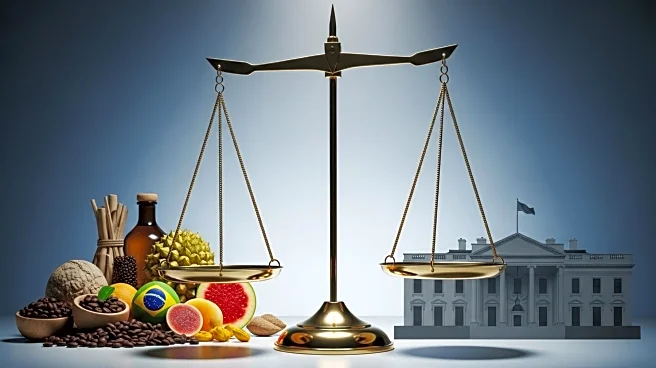What is the story about?
What's Happening?
Two US federal courts have declared the 50% tariffs imposed by President Trump on Brazilian products illegal, citing the lack of authority under the International Emergency Economic Powers Act. Despite this, the tariffs remain in effect due to procedural limitations and ongoing appeals. The tariffs have disrupted Brazil-US trade, affecting key exports like beef, chicken, and orange juice. The US government can appeal to the Supreme Court until November 2025, prolonging the uncertainty.
Why It's Important?
The tariffs have significant implications for Brazil's agribusiness and industrial sectors, which face competitiveness challenges and legal instability. The ongoing legal battle highlights the complexities of international trade relations and the impact of protectionist policies. US importers are experiencing higher costs and contractual uncertainty, affecting supply chains dependent on Brazilian commodities. The situation underscores the need for clear legal frameworks governing international trade.
What's Next?
Brazil may consider retaliatory tariffs under WTO rules, but awaits a final decision from US courts. The Supreme Court's ruling could lead to the definitive elimination of the tariffs in 2026. Brazilian companies may file lawsuits in the US to seek refunds for tariffs paid. The outcome will influence future trade policies and diplomatic relations between the two countries. Stakeholders are preparing for various scenarios, including legal actions and strategic adjustments in trade practices.















